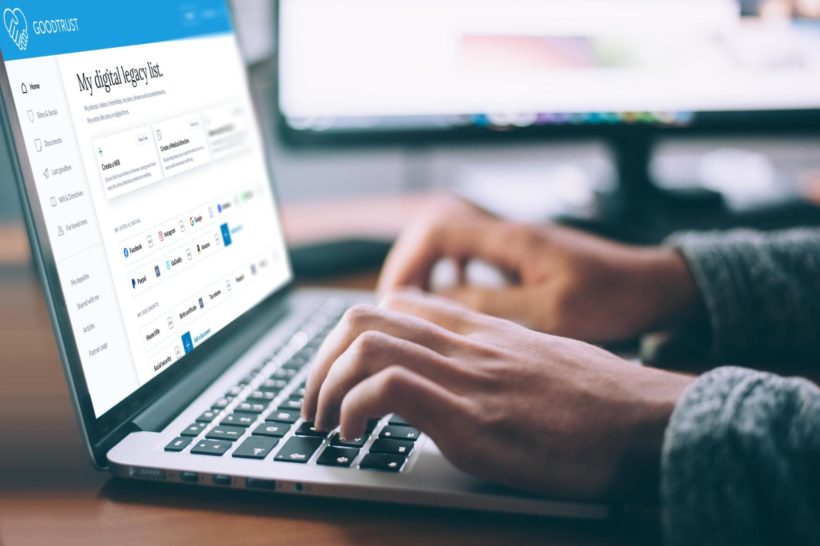
Why is GoodTrust important for Executor.org users?
The reasons for Executor.org users to get started with their digital legacy cut across both the pragmatic and the emotional, whether it’s about memorializing or shutting down accounts or preserving and sharing all the associated stories and memories. The issue of digital legacy is not just about who, what, and where, but also about how much. Ownership of digital assets can represent sizable value, and there may be financial risk and loss if there is no clear line of provenance. One study found that the average person valued their digital assets—cryptocurrency, entertainment files, video game purchases, e-books, movies, TV shows, and so on—at more than $32,000.
Even if you believe your digital life is valued more or less than that, the point is that it has value, and that value can be diminished, like a stock that plummets. For example, think of all the recurring subscriptions you currently have—Netflix, Amazon Prime, Weight Watchers, gym memberships, home security systems, cloud storage, and so on. A recent survey found that, on average, Americans spend about $237 monthly on these types of subscription services. If your loved ones aren’t aware of those subscriptions or are not easily able to turn them off, there will be a considerable financial loss to your estate when you die.
But it doesn’t stop there.
According to cyber security research firm PurpleSec, close to 98 percent of security breaches are the result of human interactions (and thus human frailty) called “social engineering,” or basically trying to trick or fool people into providing information through phony emails or phone calls. If someone at a business or bank isn’t aware that an individual has died, then they may be vulnerable to sharing information in this way.
There’s a lot to consider with our digital afterlife: the quantity of our information, the quality, its financial worth, its emotional worth. Think of it as a correlated relationship: the more you know about digital afterlife, the safer you can make the time you spend online today, and the more control you’ll have on how you’ll be remembered tomorrow. Remember, what you leave behind in the digital world reflects your human story, and there’s no way to undo your digital legacy after you’re gone.
GoodTrust takes care of the process
At GoodTrust, we make it straightforward and affordable to ensure peace of mind with your digital legacy and you decide what needs to be done with it. You can essentially choose to enter GoodTrust through one of two doors: either you’re planning ahead For You or For Someone Else in the event they’ve already passed away. In the first case, it’s similar to writing a will and ensuring there are clear directives on what happens to all your digital content and assets in the event of your passing. Think of it as planning ahead with your entire digital existence. With the second door, it’s about helping take care of someone else’s digital legacy – how should that person be remembered and how can GoodTrust take over the complexities of the process to relieve the burden from you and your family.
The place to begin may be with a little list making and a little soul searching. Jot down as much of your digital life (or someone else’s) that you can think of and how it’s accessed, including:
- Documents and files
- Photos stored in the cloud (and which ones are most valuable
- among what are potentially thousands!)
- Social media profiles (Instagram, Facebook, TikTok, Snap)
- Financial, trading, and insurance accounts
- Registered domain names
- Digital music playlists (note: the streaming song files belong to the site/artist)
- Professional accomplishments (e.g., LinkedIn)
- Movie and TV sites such as Apple+, Disney+, Hulu (note: the streaming files belong to the site, but sharing or saving someone’s favorites might be meaningful)
- Amazon or other shopping accounts
- Medium content
- Dating sites (Match, Tinder, Bumble, etc.)
- YouTube videos
- News sites
Once you’ve figured out what types of digital assets you’d like to keep, you may want to consult with friends or family members. What should you leave behind? What mattered most to the people who have passed away? Ask members of your family— parents, siblings, children, cousins, anyone who is important to you—what they’d like to have of your digital assets when you’re gone. These are difficult but important conversations as with so much of any estate planning.
The good news is that you have more control over your digital afterlife than you realize. There’s nothing particularly enjoyable about a subject like death, but death comes for us all. And we need to be prepared, whether we like it or not. Especially in this digital age.
Guest authored by Rikard Steiber, CEO of GoodTrust
Use our tool to simplify the process and minimize your stress.